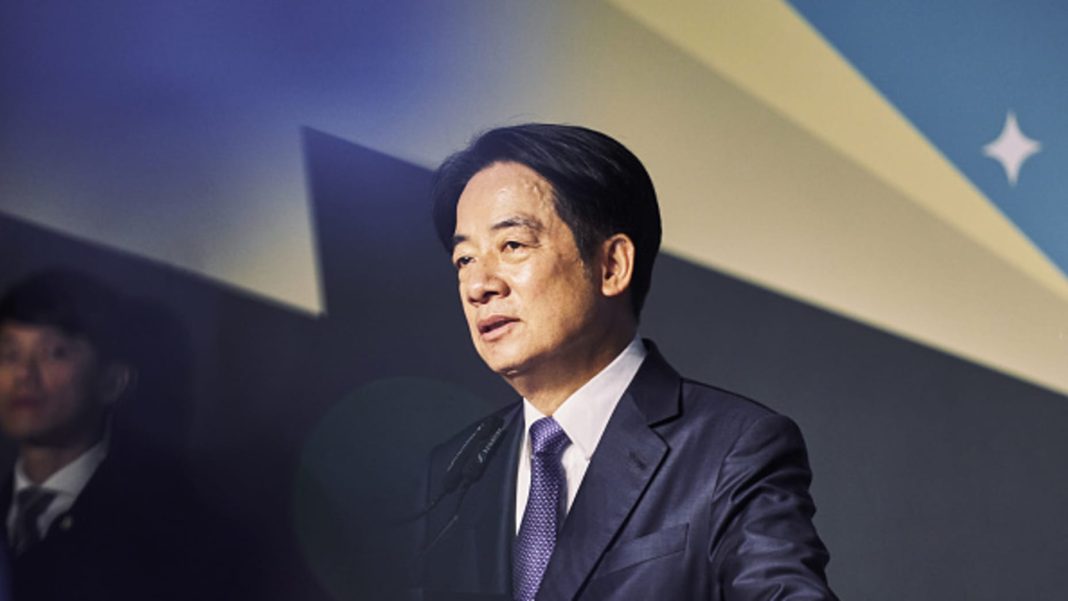China has pointed fingers at Taiwan’s President, accusing him of stirring tensions with “sinister intentions.” This accusation came ahead of a significant speech that Taiwan’s President was set to deliver in Taipei. According to China, the president has been acting in a way that escalates the situation between the two countries. China strongly dislikes Taiwan’s leader and has labeled him a “separatist.”
China’s Warning to Taiwan President
The president of Taiwan took office in May after winning the election earlier in January. Following his inauguration, China staged military exercises around Taiwan, which it referred to as “punishment” war games. This act was aimed at showing its disapproval. China continues to view Taiwan as its own territory, a claim Taiwan’s government has firmly rejected.
China’s accusations became even more serious when the Taiwan Affairs Office said that the president’s statements are “confusing right from wrong.” This comment was a response to the president’s words about how China could never be the motherland of Taiwan. According to China, the president’s views are misleading and harmful.
China’s Taiwan Affairs Office has repeatedly voiced its dissatisfaction with Taiwan’s leader. It claims that he is spreading the idea that the two sides of the Taiwan Strait are two separate countries. In response, China stated that these beliefs are nothing new, calling them “old wine in a new bottle.” They say it shows how determined Taiwan’s president is to pursue independence from China.
Taiwan’s Position and China’s Reactions
China views this stance as dangerous and says it leads to more hostility and confrontation between the two countries. The president of Taiwan, on the other hand, continues to stand by his position, which fuels China’s anger even more. This disagreement has led to many heated exchanges between the two governments.
As the day approaches for Taiwan’s National Day speech, China is watching closely. National Day in Taiwan marks the anniversary of the overthrow of the last Chinese dynasty in 1911 and the beginning of the Republic of China. This event is significant because the defeated republican government fled to Taiwan in 1949 after losing a civil war to China’s communists. The Republic of China remains Taiwan’s formal name, highlighting the complex history between the two nations.
Taiwan’s policy-making Mainland Affairs Council also responded to China’s claims. It said that since 1949, the People’s Republic of China has never ruled Taiwan, making Taiwan a separate entity. The council further stated that China’s harsh words have made Taiwan’s people realize that China sees itself as the only legitimate government and leaves no room for Taiwan to exist as a separate nation.
Military Drills and Taiwan’s Future
As Taiwan’s president prepares to give his National Day speech, there are growing concerns about China’s response. Many expect that China might launch military drills near Taiwan in reaction to the speech. These drills are seen as a way to pressure Taiwan to accept China’s claim of sovereignty over the island.
Taiwanese officials have spoken out, saying that these military exercises are merely an excuse to push Taiwan into submission. The pressure from China is constant, and Taiwan’s government has consistently resisted these moves. The tension surrounding the military exercises raises concerns about what might happen next, but Taiwan remains steadfast in its stance.
Rising Tensions: Surge in Chinese Military Presence Around Taiwan
A U.S. State Department spokesperson also commented on the situation. While they didn’t speculate on what China might do, they made it clear that using speeches or celebrations as a reason for provocative actions only makes the situation more unstable. The U.S. stressed the importance of maintaining peace and stability in the region.
Taiwan’s president has continued to assert that only the people of Taiwan can decide their future. Despite China’s disapproval, he has often offered to engage in talks with Beijing. However, these offers have been repeatedly turned down. This rejection has led to further complications in the already tense relationship between China and Taiwan.
While Taiwan stands firm in its beliefs, the tensions with China show no signs of easing. As both countries stick to their positions, the world continues to watch closely, unsure of what may happen next.





